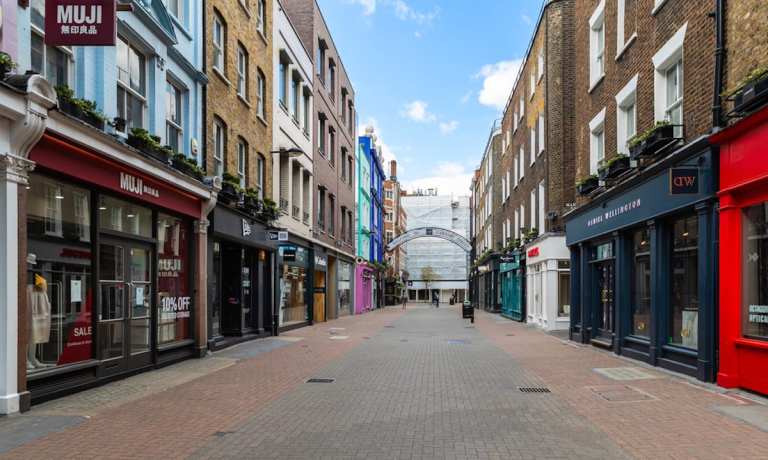Over 720,000 UK Businesses Are Facing Steep Financial Hardship

Companies across 22 sectors in the United Kingdom are undergoing the fastest uptick in significant financial distress in more than seven years, the Financial Times reported on Thursday (April 22).
More than 720,000 businesses in the U.K. are facing dire straits, according to data from insolvency firm Begbies Traynor, per FT. That number is 15 percent more than the end of 2020 and 42 percent higher than last year at this time. It is also the largest quarterly increase since Begbies Traynor began publishing the data in 2014.
Begbies Traynor defines significant distress as those companies with court judgments or a contraction of key performance indicators like working capital and net worth, according to FT.
The news comes as the U.K. continues reopening following the COVID-19 pandemic. Despite government relief measures, businesses coming out of the lockdown are saddled with debt that could lead to collapse after financial support ends. And when the rent comes due again at the end of June, struggling commercial tenants will be hit with a year’s worth of payments to landlords, per FT.
The region’s furlough scheme, which was intended to help companies stay afloat and keep staff employed, ends in the fall. That could place even more financial strain on already beleaguered companies.
Many struggling businesses have only managed to survive thanks to government support, but with the end of these loans, they may face insurmountable debt, leading to “zombie companies.”
“The dam of zombie businesses could be about to break,” Julie Palmer, partner at Begbies Traynor, told FT. “Unmanageable levels of debts and subsequent overtrading are likely to be the hidden icebergs waiting to sink even the highest profile businesses.”
Financial distress went up nearly 25 percent in transportation and logistics, per FT. London is particularly suffering due to its heavy dependence on hospitality and leisure.
England lifted the restrictions from its third lockdown on April 12, after which people rushed into stores, pubs and hair salons. More than 50 percent of adults in the U.K. are now vaccinated. The U.K.’s lockdown was stricter than in the U.S., causing the world’s fifth-largest economy to decline to its lowest level in 300 years. The country’s contracted almost 10 percent in 2020, with the overall economic drop more than double what it was in 2009 during the global financial crisis.
Businesses in the U.K. have also faced financial distress following Brexit and the trade deal between the European Union and the U.K. New customs checks have made it harder for trucking companies to carry different items together in a shipment